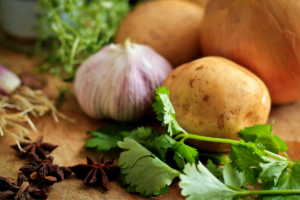Food Insecurity
 You might have heard this phrase before, but do we really know what it means? Whatever image is conjured in our minds, there is probably more to it. According to the Atlanta Community Food Bank, food insecurity “refers to USDA’s measure of lack of access, at times, to enough food for an active, healthy life for all household members and limited or uncertain availability of nutritionally adequate foods” (ACFB). This means that food insecurity can affect almost anyone at any time, regardless of housing status, immigration status, race, or nationality.
You might have heard this phrase before, but do we really know what it means? Whatever image is conjured in our minds, there is probably more to it. According to the Atlanta Community Food Bank, food insecurity “refers to USDA’s measure of lack of access, at times, to enough food for an active, healthy life for all household members and limited or uncertain availability of nutritionally adequate foods” (ACFB). This means that food insecurity can affect almost anyone at any time, regardless of housing status, immigration status, race, or nationality.Insecurity in Our Backyard
According to this definition, it’s not about having access to ANY food, it’s about having access to ENOUGH food. Perhaps this is more ubiquitous than we realize. Do we know of any parents skipping meals so their children can eat? Do we know of anyone running out of food? Have we heard of friends having to wait until a particular day in order to get enough to eat? The differentiation here is between having no food and being hungry; hunger is the issue when people cannot get enough.
This type of experience is right in our backyard. In Georgia, 10.7% of people are food insecure (1 in 9), and 13.3% of children are food insecure (ACFB). These numbers are consistent with the national numbers as well; nationally 10.4% of people are food insecure, and 12.8% of children are food insecure (ACFB).
What Can We Do?
Organizations like the Atlanta Community Food Bank are hoping to change these statistics, and it doesn’t stop there. Feeding America is the nation’s leading domestic hunger relief charity made up of over 200 food banks, with locations around Georgia (FEEDMHC), and the Episcopal Community Foundation continues to support ministries that make an impact on hunger.
But perhaps it’s more personal than this. Perhaps we can open our eyes to things around us that we fail to notice (or choose to turn away). We have an opportunity to open our eyes to those around us, to see when a parent is skipping dinner, or if a child doesn’t have enough food. There is more to donate than money; perhaps time is what you are abundant in. Perhaps you have great skill in cooking, and can brings meals to those around you. Perhaps you can pack extra snacks in your car or bag in case you come across someone who just needs a bit more. Food insecurity is a great reminder that we can do small things to make a large impact.

